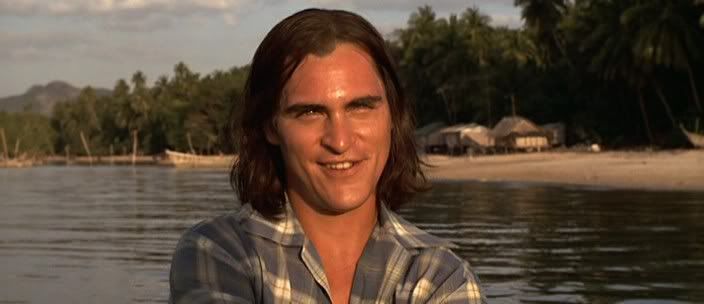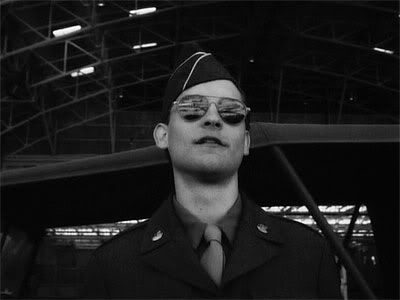THE UNDERRATED SERIES: "Return To Paradise"

It turns out that shortly after Tony and Sheriff left for the USA, Malaysian police officers came to the beach hut inquiring about a rental bike the trio hadn't returned. In their snooping around, they found the hash in the garbage can. This didn't turn out good for Lewis: the Malaysian government is very hard on drug dealers. And even though Lewis wasn't a drug dealer, there was well over the required amount of hash in the can when the police found it. This is why Beth's character is so complex. As Lewis' active lawyer, Beth has tracked down both Tony and Sheriff here in the States. She drops the news on them: Lewis will hang if Tony and Sheriff don't turn themselves in and serve 3 years each in a Malaysian prison. Beth also carries an unqualified emotional investment in the matter that is later explained.

Tony and Sheriff are pretty shocked to hear this piece of news. The idea that Lewis has been rotting in a Malaysian jail cell since their departure years ago is baffling. Further, Tony and Sheriff have moved on with their lives. Tony is engaged and ready to be married to a beautiful woman. Sheriff has carved himself a career as a limo driver. The days of Malaysian shenanigans are behind them. Why do they each have to sacrifice 3 years of their lives?
A film like "Return To Paradise" succeeds largely because we in the audience are searching within ourselves for an answer. Could we actually do this? Turn ourselves in and go to jail for 3 years? In another country?
Especially effective in this film are the performances by the principle actors. Light years before his blockbuster-molding persona as the frat pack funny guy, Vince Vaughn plays Sheriff as equal parts vulnerable and assured. Between Tony and Sheriff, Vaughn makes Sheriff the film's quiet hero. He may not be as accomplished as Tony but Sheriff has a value system that isn't fully formed until the film's close and this makes him tremendously accessible to the audience. Tony on the other hand may come off villainous in his reasoning but to paint him solely in that color would be unfair. Tony makes valid points regarding responsibility, reality and how the two can't be chosen at once. The juxtaposition between these two characters highlight the film's raw power; it isn't about good vs. evil but rather an ethical argument of right vs. wrong.
Joaquin Phoenix is absolutely devastating as Lewis. It's an Oscar caliber supporting turn (a performance the Academy acknowledged by giving him a nod for the ridiculous "Gladiator," two years later) that is expertly written. Other "courtroom dramas" would have a character like Lewis bounce around for gimmicks, trying to play up the victim role. Phoenix--who is seen very little in the film--delivers cries, whimpers and words that are all from the gut. Nothing is forced. When Lewis speaks into a camera for a video that will be sent to Tony and Leiws, Phoenix makes it such a physical delivery that every word seems like it could be his last. Truly devastating moments are created.
Heche does her best work here. To go into depths about her character's being would mean revealing a crucial plot development. Let me just say that Heche, in every scene really, is challenged with letting her character fall into the one-note seductress or high-brow power figure. She rises above those shortcomings gracefully. To watch her scenes with Vaughn, especially in the third act, are truly rewarding. In a late scene she reaches her hand out to Sheriff and he holds her hand. The two look at each other without saying anything. That moment is great.
But enough for now. Go out and Netflix it or hit up the Blockbuster. And then share it with your friends. You won't be sorry.







